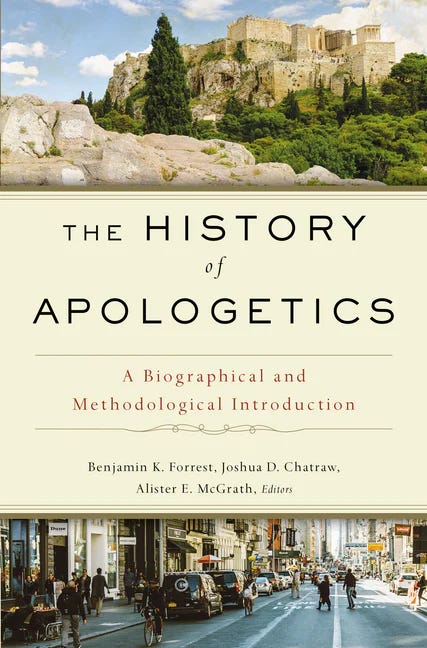My journey from growing up in a Christian home to becoming an atheist included many influences. I read Hindu, Buddhist and Taoist texts and the writings of many atheist philosophers. The person who influenced me the most personally was Madalyn Murray O’Hair—the woman Life magazine called the most hated woman in America. I deeply admired her strength and tenacity, but never dreamed we might actually work together.
Because of the long-distance friendship we developed as fellow atheists, I’ll address her by her first name during this article. We eventually took different paths and I still feel a deep sadness about what happened to her years later. More about that at the end of this article.
I first talked with Madalyn in the late 1960s when I helped produce a radio talk show in Florida. I had filled in as a talk show host in a small radio market, but then moved to a larger market where I learned from a seasoned talk show host how to produce and host talk shows.
Madalyn Murray O’Hair had quite a reputation by the time I talked with her. She sued the Baltimore Public School System to end Bible reading and prayer in public schools. Madalyn’s lawsuit was consolidated with another lawsuit and the U.S. Supreme Court voted 8-1 in 1963 in favor of the plaintiffs. Bible reading, prayer and recitation of the Lord’s Prayer were no longer allowed in public schools. You might imagine what Christians thought of Madalyn after that.
1963 was the same year Madalyn founded the Society of Separationists (also known as American Atheists). She was outspoken about her belief in the separation of church and state and her disbelief in the existence of God. That became a primary point of argument in her writings and radio programs. Madalyn started her own radio program in Austin, Texas in 1968 and published her first book, What On Earth Is An Atheist (American Atheist Press, 1969), which was composed of transcripts from her radio program.
One of the benefits of producing a radio talk show was talking with guests before the host talked with them on air. My job as a producer was to make sure guests were on the phone several minutes before their interview segment and to find out anything special they wanted to discuss with the host. I then passed those notes along to the host. After a brief on-air discussion between the host and guest, the host would open the phone lines to callers and that’s when the fun began — especially with a guest like Madalyn Murray O’Hair. People despised her and the fireworks exploded in both directions.
It was during those prep calls that Madalyn and I talked about atheism and the ignorance of theists, especially Christians. Madalyn had no patience with Christians. She saw them as ignorant and superstitious. I agreed and Madalyn liked that. She told me she didn’t often find producers or hosts around the country who agreed with her.
Madalyn was very confident in her beliefs. She said she was absolutely right and Christians were absolutely wrong. Period. The same confidence she expressed on air with callers was the same confidence she expressed to me privately. As best I could tell Madalyn was the real thing—a strong, activist atheist.
Madalyn Murray O’Hair was involved in many lawsuits concerning religion. We talked about one in 1969 that made many of our callers angry. Madalyn filed suit against NASA (O’Hair v. Paine, 1969) after Apollo 8 astronauts read the first ten verses of the Bible live on television on Christmas Eve, 1968. Even though she eventually lost the case, that lawsuit and others were some of the reasons people called radio talk shows to yell at her.
Madalyn was on a mission to separate church and state in the United States – completely and permanently. She especially opposed religious groups that received federal tax exempt status. That’s something we often discussed. Madalyn believed people should spend their time finding ways to end disease, poverty and war, not buy more land to build more churches to pay more preachers.
Madalyn also believed prayer was a waste of time. She was known for saying “Two hands working can do more than a thousand clasped in prayer.” Instead of people praying, studying the Bible and trying to convince other people to be like them (Christians), Madalyn believed it would be better for everyone to do what felt good and seemed right to them. I agreed (at the time).
Those and so many other statements Madalyn made on our radio talk shows fired up the listeners to call in and tell her what they thought about her and her ideas. Some callers tried to be polite, but many ended their calls by telling Madalyn to “go to hell.” She seemed to enjoy that reaction from Christians. It supported her belief that Christians were ignorant.
Madalyn and I agreed that God did not exist and the universe had no purpose or meaning. It was up to every person to find their own meaning in life. She later said she wanted three words on her tombstone: Woman, Atheist, Anarchist. Madalyn never got her wish.
I mentioned at the beginning of this article that I still feel a deep sadness when I think about Madalyn Murray O’Hair. The owner of the radio station I worked for eventually changed the format from news/talk to religion/gospel and I never talked with Madalyn again. I became a Christian months later, but never called to tell Madalyn what had happened to me. I can only imagine what she might have said to me, but I’ll never know because I didn’t make the call.
Madalyn spent the next 25 years writing, talking on radio and TV, speaking and running American Atheists. That is until she disappeared with members of her family and money that belonged to the organization she ran. For six years many people believed Madalyn had absconded with the money, but then a gruesome discovery was made in March 2001. The mutilated and burned bodies of Madalyn Murray O’Hair, her son Jon Garth and granddaughter Robin were found on a remote ranch in southwest Texas. Investigators determined that a former employee of American Atheists had kidnaped them with the help of others. David Roland Waters eventually confessed to the crime and led investigators to where the bodies were buried. He died in prison in 2003.
Madalyn Murray O’Hair was 76-years-old when she died. She was cremated and her ashes were buried in an unmarked grave in an undisclosed cemetery. Madalyn never got the tombstone she wanted.
Even though there’s no tombstone, I’ll never forget Madalyn. She played an important part in my life. Madalyn believed she was right and believed that deeply. She was passionate and unafraid. She looked at some of the evidence for Christianity and believed it wasn’t true. I believe now she was wrong.
I took a long, hard look at the evidence for Christianity and realized that God does exist, the Bible is reliable and Jesus is real. So, what am I doing with my life? Where is my commitment? Where is my passion? We Christians have been given a very special gift—the Truth. We have eternal life through faith in Jesus Christ. What’s that worth to us? Are we ready to stand up and be counted? My hope and prayer is that we are and do.
— Mark McGee spent decades as a professional journalist in radio, television, newspapers and online. He writes for several blogs and is active in apologetics groups such as Ratio Christi, the Christian Apologetics Alliance, and Engage 360. Learn more about Mark at his website Faith & Self Defense.
Book Highlight
Being Truly Human: The Limits of Our Worth, Power, Freedom and Destiny is the first volume in the six-book series The Quest for Reality and Significance. In these volumes Christian scholars David Gooding and John Lennox examine six topics that are central to the Christian worldview and compare the biblical perspective to skeptical philosophies, past and present.
In Being Truly Human, Gooding and Lennox take up vital topics about the human person including the value of human life, the impact of the fall on humanity, the nature and basis of morality, and human destiny. These books provide a thorough introduction to the Christian worldview, while also defending it in contrast to competing perspectives.
“Clear, simple, fresh and highly practical—this David Gooding/John Lennox series is a goldmine for anyone who desires to live Socrates' 'examined life.' Above all, the books are comprehensive and foundational, so they form an invaluable handbook for negotiating the crazy chaos of today's modern world.”
— Dr. Os Guinness, author of Last Call for Liberty
“Written by two outstanding scholars who combine careers of research and teaching at the highest levels. David Gooding and John Lennox cover well the fields of Scripture, science, and philosophy, integrating them with one voice. To get all this wisdom together in this set was an enormous undertaking! Highly recommended!”
— Dr. Gary R. Habermas, Distinguished Research Professor & Chair, Dept. of Philosophy, Liberty University & Theological Seminary
“John Lennox and David Gooding are exemplary guides to the deepest questions of life in this comprehensive series. It will equip thinking Christians with an intellectual roadmap to the fundamental conflict between Christianity and secular humanism. For thinking seekers it will be a provocation to consider which worldview makes best sense of our deepest convictions about life.”
— Justin Brierley, host of the Unbelievable? radio show and podcast
Find Being Truly Human at Amazon, Christianbook.com, and 10 of Those (best overall price on the paperback) and other major booksellers.
* This is a sponsored post.
Book Highlight
There are very few histories of apologetics. Besides this volume, there is only one other major work on this topic, published 15 years ago. Thus The History of Apologetics is a very welcome volume and one that apologists will greatly benefit from. The book surveys 44 apologists beginning with Justin Martyr and ending with Timothy Keller. Each chapter covers a figure’s historical background (especially their biographical details), their theological context, their apologetics work and methodology, and contribution to the field. The book reminds us that we are part of a great cloud of witnesses who have been teaching and defending the faith for millennia.

“This volume employs competent scholars to write about noteworthy apologists throughout the history of the church's intellectual engagement with the unbelieving world. Apologists shouldn't defend the faith in a historical vacuum since we ought to stand on the shoulders of giants. This is the most thorough history of its kind that I know of and will repay careful study for the defense of the faith given once and for all to the saints.”
— DOUGLAS GROOTHUIS, Denver Seminary
“This book contains richly developed surveys of the apologetic arguments and approaches of a wide array of the Christian faith's greatest and most influential advocates over the centuries. Though the book is easily readable, it is extraordinarily informative—like the best apologetic works themselves! I learned so much from reading this book, even with regard to authors whose writings I know. Highly recommended to every Christian and especially to clergy and scholars, for whom the task of Christian apologetics is an urgent call.”
—MATTHEW LEVERING, James N. and Mary D. Perry Jr. Chair of Theology at Mundelein Seminary
Find The History of Apologetics at Amazon, Zondervan, and other major booksellers.
* This is a sponsored post.
Subscribe now and receive 50% off the normal rate!
Subscribe to The Worldview Bulletin and receive a master class in worldview training, delivered monthly directly to your inbox. Receive a year’s worth of equipping for the discounted price of only $2.50 per month!





